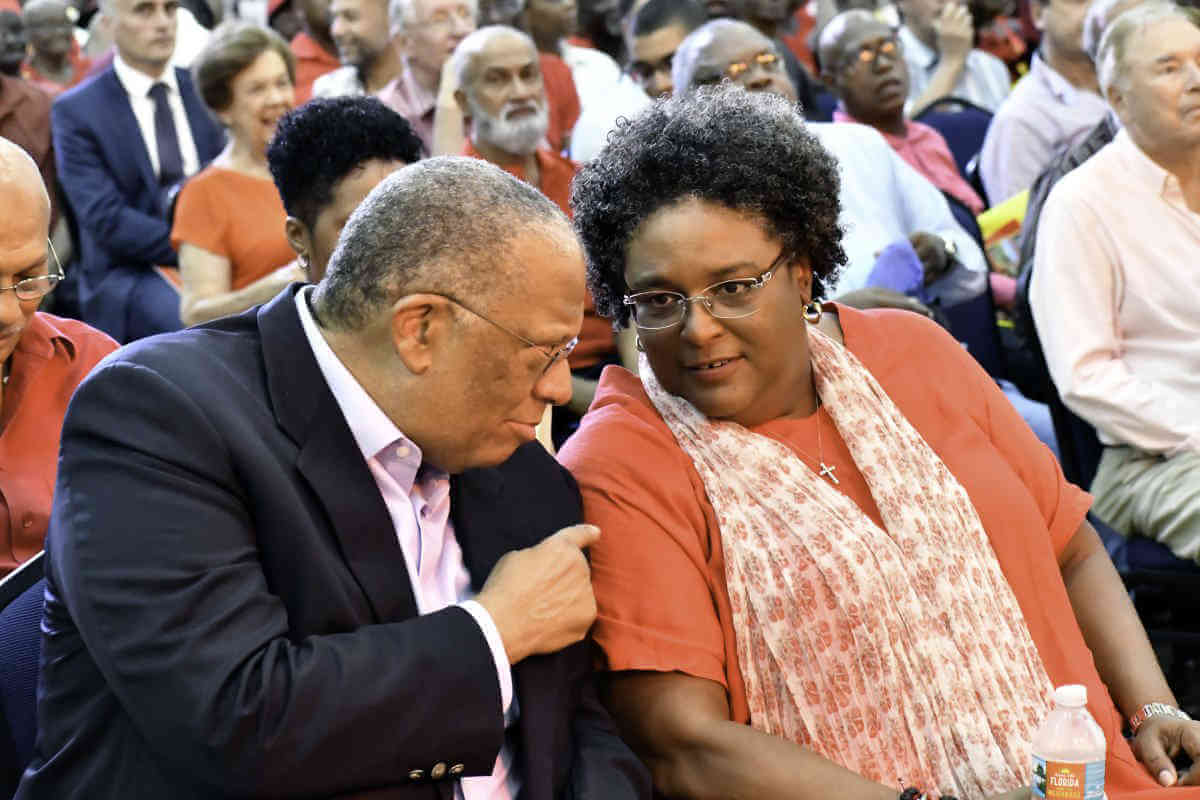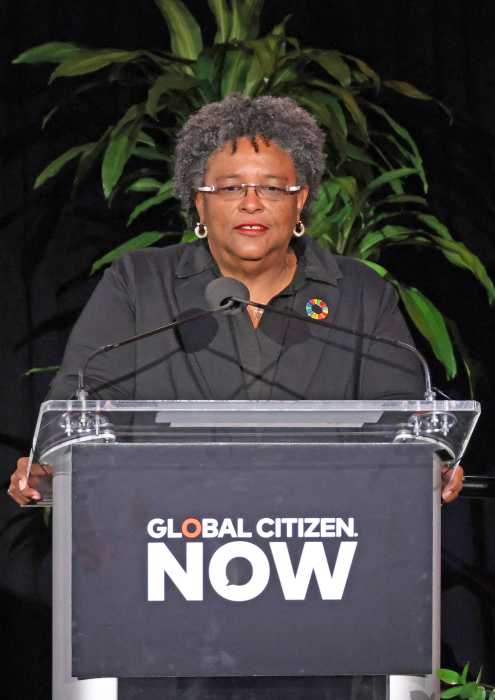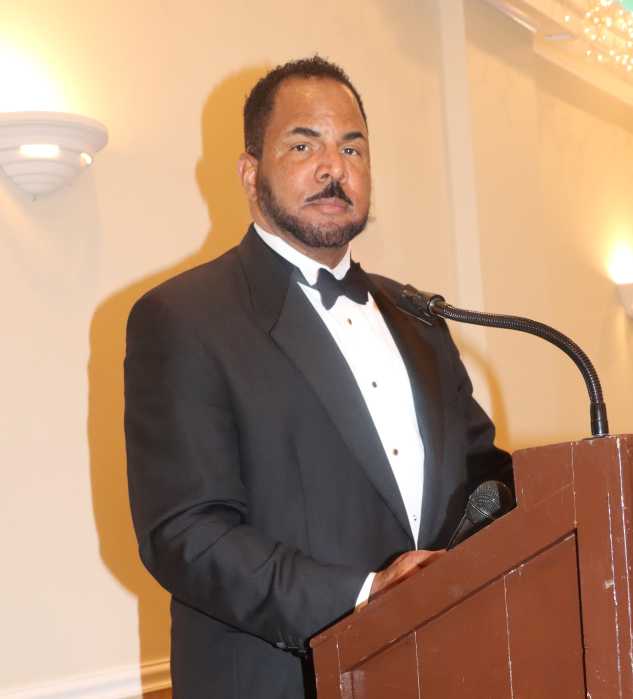Jamaica’s Opposition Leader Peter Phillips went to Barbados to sound warnings of threats to the Caribbean in the hostility of developed countries towards emigration, changes in trade and the continued denial by some of an altering climate.
Phillips, leader of Jamaica People’s National Party (PNP), was in Barbados last weekend to show solidarity with the island’s Prime Minister, Mia Mottley and the ruling Barbados Labour Party (BLP) that held its 80th annual conference.
Pointing out that both the PNP and the BLP observed their 80th anniversary this year as ‘the longest continuously existing political parties in the English-speaking Caribbean’ he said, “we were formed out of the same crucible of popular rebellion and outrage in the 1930s, and we joined together in spirit and in collaboration to fashion a path to nation and regional community… enduring over these past 80 years.”
While stressing the Caribbean bonds which he said must guide political life, Phillips spoke of the changing attitude towards emmigrants and said that is a challenge because, “we come from a region that has benefitted from opportunities for emigration.”
“We feel pride in the contributions that Caribbean people have made over the generations whether it is building the Panama Canal, the transport system in the United Kingdom, hospitals in the United States, and we believe in a liberal world of free movement of peoples, a world without doctrines that are oppressive to people who have to move just because of their poverty.”
Phillips said that there however now exists “hostility rooted in racism and xenophobia manifesting in attitudes towards migrants and migrant communities in the world,” and noted, “the revival of these anti-migrant sentiments and policies is affecting our Caribbean people.”
A case in point he said is the plight of the thousands of forcefully repatriated Haitians who had gone to North America in the wake of the massive 2010 earthquake.
Without identifying the United States by name, he said this country has greater capacity to accommodate the Haitians than their homeland but they “have been returned to Haiti … into the maelstrom of social crisis and economic hardship, which still persists because of the natural disaster suffered.”
Moving to another example of collective Caribbean hurt, Dr. Phillips cited closure of some doors to free trade because of disagreements among world superpowers causing Caribbean countries to become ‘collateral damage.’
“The battle does not concern us but the negative effects make life much harder, potentially, for the Jamaican worker.”
He said Jamaicans employed in the bauxite industry, in which the Russian company, Rusal, has major management are finding their livelihoods affected by pending United States sanctions.
Rusal also manages Guyana’s bauxite operations where the jobs of Guyanese workers are similarly threatened.
Against the backdrop of the United States withdrawing from international agreements aimed at addressing causes of climate change, Phillips said, “while we are not great users of fossil fuel, the very existence of our island states is threatened by global warming and the climate changes thus engendered.”
Stressing the devastating impact on the region of hurricanes, which appear to be increasing with climate change, he noted that unlike the isolated effect on the United States when a hurricane hits one of its 50 states, when such storms land on a Caribbean island “it threatens the entire survival of the economic life of our countries.”
The Jamaican Opposition leader said, “these problems require bold courageous and collective action on the part of our countries and political movements in the Caribbean.”


























